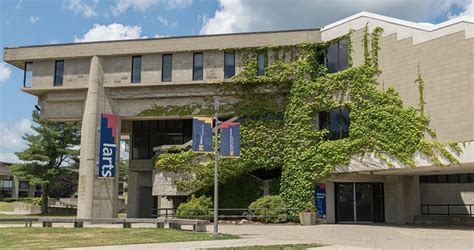Dartmouth College, nestled amidst the picturesque Connecticut River Valley, has long been renowned for its exceptional liberal arts education. With a history spanning over 250 years, Dartmouth has consistently ranked among the top research and teaching institutions in the United States. Its liberal arts approach emphasizes critical thinking, problem-solving, and effective communication, equipping graduates with the skills necessary to thrive in an ever-changing world.

The Importance of Liberal Arts
In the face of rapid technological advancements and a globalized economy, the value of a liberal arts education has never been higher. A study by the Association of American Colleges and Universities found that liberal arts graduates have consistently higher earnings, better job satisfaction, and stronger leadership skills than those with only specialized training. They are also more likely to be involved in community service and engaged in civic life.
Dartmouth’s Liberal Arts Curriculum
Dartmouth’s liberal arts curriculum provides a broad foundation in the humanities, social sciences, and natural sciences. All students are required to take a wide range of courses in these areas, including:
- Humanities: Literature, history, philosophy, art history, classics
- Social Sciences: Economics, sociology, psychology, anthropology, political science
- Natural Sciences: Biology, chemistry, physics, mathematics, environmental studies
Interdisciplinary Studies
One of the hallmarks of Dartmouth’s liberal arts approach is its emphasis on interdisciplinary studies. Students are encouraged to explore connections between different fields and gain a comprehensive understanding of the world around them. This interdisciplinary approach fosters creativity, innovation, and the ability to think critically about complex issues.
Experiential Learning
Dartmouth places a strong emphasis on experiential learning, providing students with opportunities to apply their knowledge in real-world settings. This includes:
- Internships: Students gain practical experience by working in government, nonprofit, and corporate organizations.
- Field Studies: Students travel to different parts of the country or the world to study specific topics or cultures firsthand.
- Research: Students engage in original research projects under the guidance of faculty mentors.
Personalized Education
Dartmouth’s small class sizes and close-knit community foster personalized education. Each student receives individualized attention from faculty members who are dedicated to teaching and mentoring. This personalized approach ensures that every student has the opportunity to reach their full potential.
Benefits of a Dartmouth Liberal Arts Education
Graduates of Dartmouth’s liberal arts program enjoy a wide range of benefits:
- Higher Earning Potential: According to PayScale, Dartmouth graduates earn an average of over $100,000 per year within five years of graduation.
- Better Job Success: Dartmouth graduates are more likely to be employed in high-paying jobs and to have satisfying careers.
- Stronger Leadership Skills: Dartmouth graduates demonstrate exceptional leadership abilities and are frequently sought out for positions of responsibility.
- Greater Civic Engagement: Dartmouth graduates are actively involved in their communities and contribute to the public good.
Table 1: Dartmouth College Rankings
| Ranking Organization | Rank |
|—|—|—|
| U.S. News & World Report (2023) | 10th |
| Forbes (2022) | 15th |
| Washington Monthly (2022) | 20th |
Table 2: Dartmouth Liberal Arts Curriculum Requirements
| Course Type | Credits Required |
|—|—|—|
| Humanities | 36 |
| Social Sciences | 27 |
| Natural Sciences | 36 |
| Foreign Language | 12 |
| Electives | 21 |
Table 3: Dartmouth Experiential Learning Programs
| Program | Description |
|—|—|—|
| Internship Program | Students work in government, nonprofit, or corporate organizations for one or more terms. |
| Field Studies Program | Students travel to different parts of the country or the world to study specific topics or cultures firsthand. |
| Research Program | Students engage in original research projects under the guidance of faculty mentors. |
Table 4: Benefits of a Dartmouth Liberal Arts Education
| Benefit | Description |
|—|—|—|
| Higher Earning Potential | Dartmouth graduates earn an average of over $100,000 per year within five years of graduation. |
| Better Job Success | Dartmouth graduates are more likely to be employed in high-paying jobs and to have satisfying careers. |
| Stronger Leadership Skills | Dartmouth graduates demonstrate exceptional leadership abilities and are frequently sought out for positions of responsibility. |
| Greater Civic Engagement | Dartmouth graduates are actively involved in their communities and contribute to the public good. |
Conclusion
Dartmouth College’s liberal arts education offers students an unparalleled opportunity to develop the critical thinking, problem-solving, and communication skills essential for success in the 21st century. With a well-rounded curriculum, emphasis on experiential learning, and personalized approach, Dartmouth empowers its graduates to make meaningful contributions to their communities and the world at large. In an era where innovation and adaptability are paramount, a Dartmouth liberal arts education is an investment in a brighter future.
Strategies to Make the Most of Your Dartmouth Liberal Arts Education
- Take a wide range of courses: Explore different fields and discover your passions.
- Get involved in extracurricular activities: Join clubs, attend lectures, and participate in research projects.
- Build relationships with faculty members: Get to know your professors and seek their advice and support.
- Take advantage of experiential learning opportunities: Internships, field studies, and research projects provide valuable real-world experience.
- Think critically and creatively: Challenge assumptions, ask questions, and generate new ideas.
- Communicate effectively: Develop strong written and verbal communication skills.
- Be adaptable and open-minded: Embrace change and be willing to learn new things.
